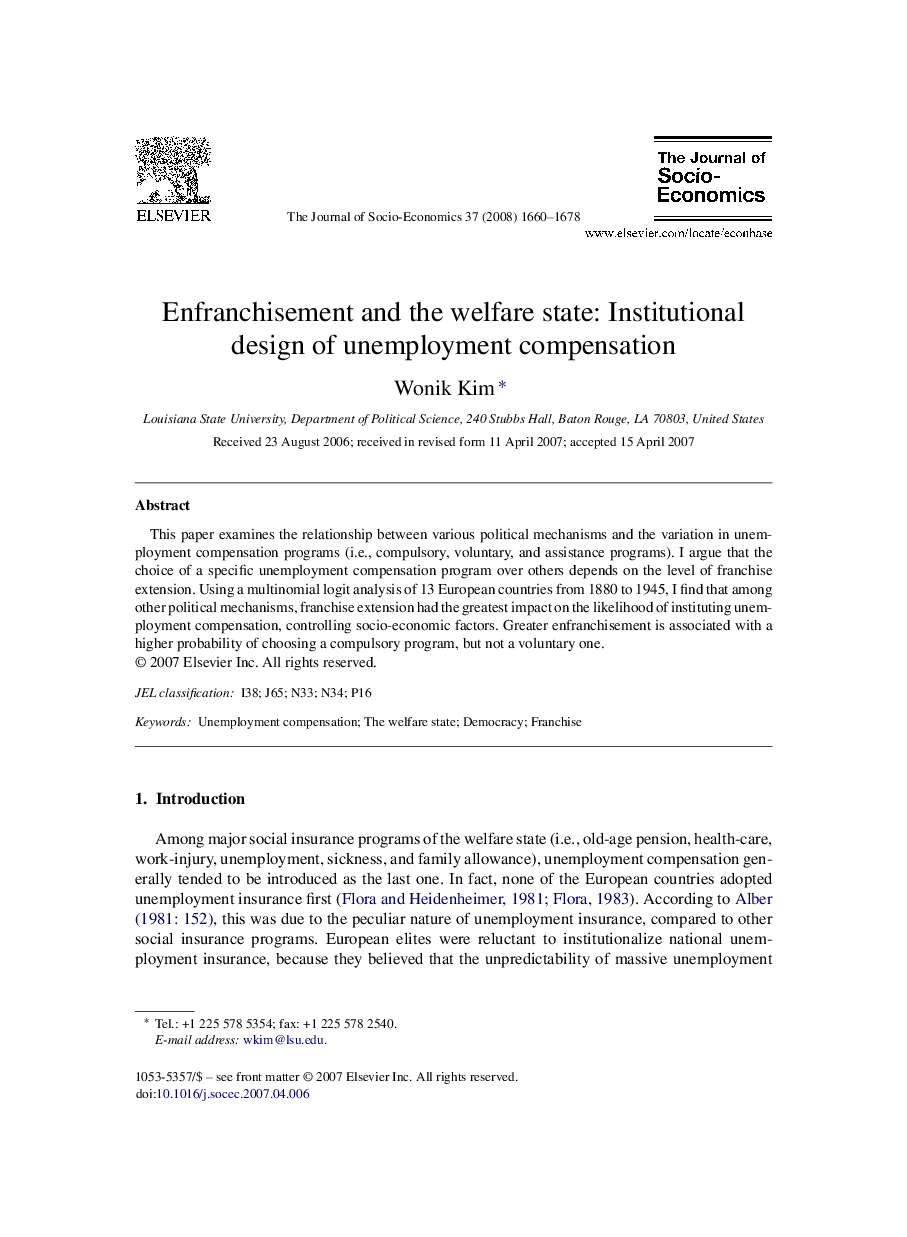| Article ID | Journal | Published Year | Pages | File Type |
|---|---|---|---|---|
| 971443 | The Journal of Socio-Economics | 2008 | 19 Pages |
Abstract
This paper examines the relationship between various political mechanisms and the variation in unemployment compensation programs (i.e., compulsory, voluntary, and assistance programs). I argue that the choice of a specific unemployment compensation program over others depends on the level of franchise extension. Using a multinomial logit analysis of 13 European countries from 1880 to 1945, I find that among other political mechanisms, franchise extension had the greatest impact on the likelihood of instituting unemployment compensation, controlling socio-economic factors. Greater enfranchisement is associated with a higher probability of choosing a compulsory program, but not a voluntary one.
Related Topics
Social Sciences and Humanities
Economics, Econometrics and Finance
Economics and Econometrics
Authors
Wonik Kim,
